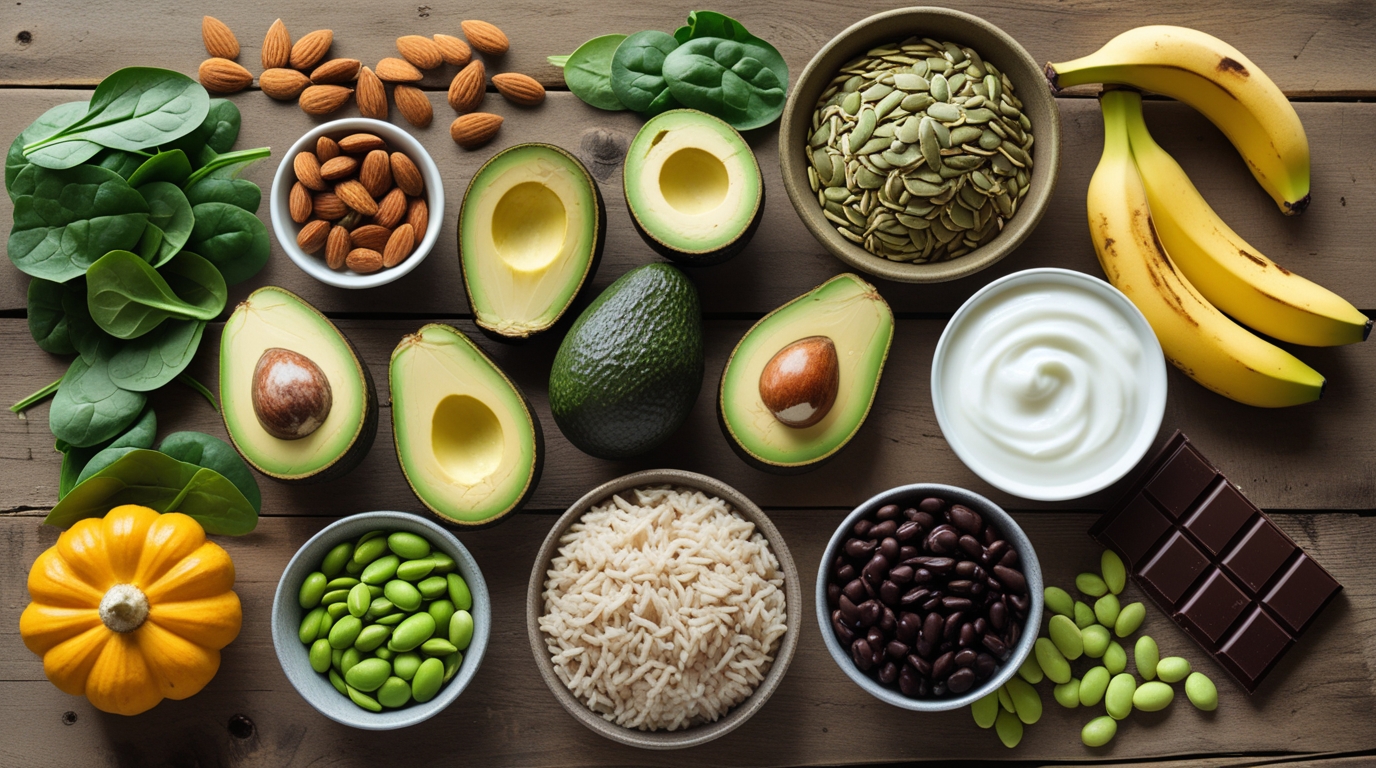Magnesium-rich foods in the United States are essential for maintaining optimal health. Magnesium supports over 300 bodily functions, including muscle performance, nerve activity, and energy production. With magnesium deficiency affecting millions of Americans, it’s important to recognize which foods can help naturally replenish your levels. This guide outlines the top 10 magnesium-rich foods commonly available across the U.S., backed by science and packed with nutritional value.
Why Magnesium-Rich Foods in the United States Matter for Americans
Magnesium plays a crucial role in regulating blood pressure, supporting the immune system, maintaining bone health, and balancing blood sugar levels. Over the long term, obtaining magnesium through food is safer and more effective than relying on supplements.
Related: Magnesium Deficiency in the United States
1. Spinach – A Magnesium-Rich Food in the United States
With roughly 157 mg per cooked cup, spinach is one of the leafiest greens that is highest in magnesium. Iron, folate, and vitamin K are also abundant in it.
Buy Organic Spinach Powder on Amazon
2. Pumpkin Seeds – A Magnesium-Rich Food in the United States
Pumpkin seeds contain 168 milligrams of magnesium per ounce. They make an excellent snack or addition to oatmeal or salads.
Shop Raw Pumpkin Seeds on Amazon
3. Black Beans
Each cooked cup of black beans has 120 milligrams of magnesium. They are also a great source of plant-based protein and fiber.
4. Almonds
Each ounce of almonds has 80 milligrams of magnesium. They make a filling snack and are heart-healthy.
5. Avocados
Each avocado fruit contains about 58 milligrams of magnesium. They also include potassium and heart-healthy lipids.
6. Dark Chocolate (70-85%)
Up to 64 mg of magnesium can be found in one ounce of dark chocolate. To get the most benefit, pick a variety that has at least 70% cocoa.
Shop Dark Chocolate Bars on Amazon
7. Brown Rice
About 86 milligrams of magnesium can be found in one cup of cooked brown rice. It is a mainstay in many American homes and has a high fiber content.
8. Edamame
There are 100 mg of magnesium in one cup of cooked edamame. Fiber and protein are also abundant in this plant-based snack.
9. Yogurt
About 45 mg of magnesium can be found in one cup of low-fat yogurt. It also adds calcium to your diet and supports digestive health.
10. Bananas
Although they are more well-known for their potassium content, bananas also contain roughly 32 mg of magnesium per medium fruit, making them an excellent post-workout snack.
Combine Magnesium-Rich Foods in the United States with Vitamin D for Better Absorption
Vitamin D and magnesium complement each other. Activating vitamin D, which aids in calcium regulation, requires magnesium. Combining the two nutrients strengthens the immune system and promotes bone health.
Read More:
How Much Vitamin D Should You Take Daily in the United States
Vitamin D Deficiency in the United States
Best Vitamin D Supplements in the United States
Vitamin D vs D3 in the United States
Trusted Resource:
For further reading, visit the Cleveland Clinic’s guide to magnesium.
FAQs: Magnesium-Rich Foods in the United States
Q1: Can I meet my magnesium needs through food alone?
Indeed! Unless you are seriously deficient, a diet high in foods that contain magnesium can satisfy your needs without the need for supplements.
Q2: Which magnesium-rich food is best for daily intake?
Because of their high magnesium concentration and adaptability, spinach and pumpkin seeds are excellent options.
Q3: Are there plant-based options for magnesium?
Indeed, beans, leafy greens, and nuts are great plant-based sources of magnesium.
Q4: Should I still take a supplement?
only if food intake is inadequate or if your healthcare provider recommends it.
Call to Action
Start including these magnesium-rich foods in your meals today! If you need additional support, consider high-quality magnesium supplements available on Amazon. Share this guide to help others improve their health naturally.
Disclaimer
This content is for informational purposes only and is not intended to substitute professional medical advice, diagnosis, or treatment. Always seek the guidance of your physician or qualified health provider with any questions you may have regarding a medical condition or dietary change.
Written by the team at FitFusionBlogs — your go-to source for U.S.-focused health and wellness insights.

